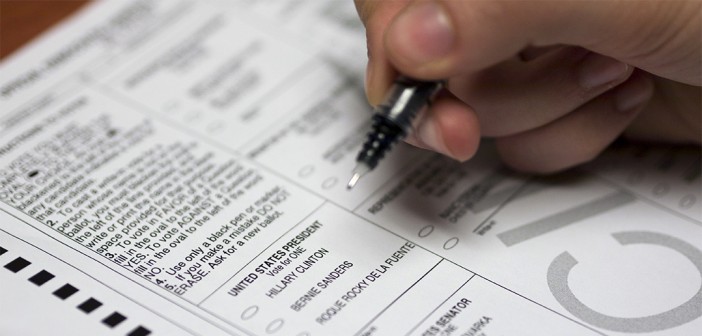For many registered student voters at Lehigh, casting a ballot is not as simple as walking to a polling place. For non-Pennsylvanians, an absentee ballot is required to participate in home-state elections.
There have been efforts on campus to educate students about this process and encourage them to vote. Individuals were walking around campus with slips to register to vote during the semester, and several campus projects have encouraged students to learn about the election process.
After registering, students must fill out a form and mail it to their County Board of Elections to acquire an absentee ballot. In Pennsylvania, this application must be received the Tuesday before the election. The student will then receive a ballot in the mail, fill that ballot out and return it by the Friday before the election.
Ziad Munson, an associate professor of sociology, said Pennsylvania is a particularly difficult state to vote in, and this might discourage both student voters and outside voters from voting. Munson, who has lived in and voted in other states, said he experienced the difficulties of the voting process in Pennsylvania.
“Like any group of people, students vary in the level in understanding that they have about politics but that’s the way that democracy works,” Munsonsaid. “It is incumbent upon the political party, the political candidates and different people who believe strongly about one side of an issue or another to let others know both if the issue is important and why it’s important.”
The Global Citizenship senior capstone project Party Responsibility has worked to provide students with the knowledge and resources to vote in both the primary and presidential elections. Sammi Greene, ’16, Taylor Alexy, ’16, and Sarah Berman, ’16, started the project to increase awareness on campus about voting.
Greene said the absentee ballot process can be discouraging because many students are unaware of the process and will not vote because of this. Greene also said Lehigh students from other countries can participate in the various conversations about the election, but cannot directly participate in the election process.
“Pennsylvania has a political system that is designed to make it difficult to vote,” Munson said. “They make it difficult for independents to vote. They make it difficult for everyone to vote.”
Greene said Lehigh does not provide enough resources for students to get involved or learn more about the election, and part of the mission with the senior capstone project was to educate students and provide the resources to both increase voting and spark further interest in the upcoming election.
“We realized that there was a lot of political apathy, unawareness, and miseducation and we wanted to kind of address that,” Greene said.
After handing out free items with the Party Responsibly logo, the seniors educated students about the voting process and encouraged students to take the I Side With quiz to ensure that all students could vote based on their personal beliefs.
They also organized a game for students in which they had to guess a candidate’s identity based on their quotes.
“They were deliberately misleading,” Greene said.
She noted the goal of the exercise was to educate students about each candidate.
Alexy said there are not as many resources or as much of a focus on the election for students in the business school. She said it was interesting to see how many students did not know about the candidates’ views or world news.
Munson said he has heard more students talk about politics this semester than he has in past years, and he hopes students will vote in both the primary and general election.
“This election cycle, I have overheard more students on campus talking about national politics than I have in over 10 years that I have been at Lehigh,” he said. “I think that is a good thing because students represent a huge population in the United States, and they are the ones more than old people whose lives are going to be impacted the longest by the people who are elected.
“It gets students involved in their communities and in their social world.”






Comment policy
Comments posted to The Brown and White website are reviewed by a moderator before being approved. Incendiary speech or harassing language, including comments targeted at individuals, may be deemed unacceptable and not published. Spam and other soliciting will also be declined.
The Brown and White also reserves the right to not publish entirely anonymous comments.